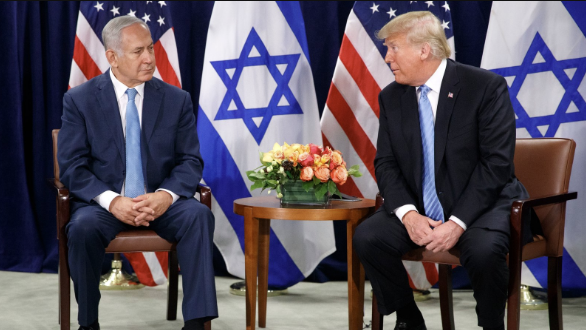Trump Proposes Two-State Solution to Resolve Israel-Gaza Standoff
In a surprising development, former U.S. President Donald Trump is reportedly preparing to propose a two-state solution to address the long-standing Israel-Gaza conflict. The announcement, expected to be detailed in the coming weeks, marks a significant shift in Trump’s approach to the Middle East, which during his presidency leaned heavily on the Abraham Accords and a pro-Israel stance. Sources close to the former president suggest that the proposal aims to break the cycle of violence and lay the groundwork for lasting peace in the region.
Background of the Israel-Gaza Conflict
The Israel-Gaza standoff is rooted in decades of territorial disputes, competing national aspirations, and cycles of violence. Israel, established in 1948, and the Palestinian territories, including Gaza, have been at odds over issues like borders, settlements, security, and the status of Jerusalem. Gaza, controlled by Hamas since 2007, has faced blockades and frequent military escalations with Israel, leading to significant loss of life and humanitarian crises.
Efforts to broker peace, including previous U.S.-led initiatives, have often stalled due to disagreements over key issues like Palestinian statehood and Israeli security. The two-state solution—envisioning an independent Palestinian state alongside Israel—has long been a cornerstone of international diplomacy but has faced resistance from hardline factions on both sides.
Trump’s New Proposal
According to insiders, Trump’s forthcoming plan will advocate for a two-state framework, emphasizing clear borders, mutual recognition, and robust security guarantees. The proposal reportedly includes:
- Defined Borders: A delineation of territory based on pre-1967 lines with mutually agreed land swaps, aiming to balance Israel’s security needs with Palestinian aspirations for contiguous territory.
- Jerusalem as a Shared Capital: A nuanced approach to Jerusalem, potentially designating East Jerusalem as the capital of a Palestinian state while maintaining Israel’s capital in West Jerusalem.
- Security Arrangements: Extensive measures to ensure Israel’s defense, including demilitarization clauses for the Palestinian state and international peacekeeping forces in sensitive areas.
- Economic Incentives: A Marshall Plan-style economic package to rebuild Gaza and develop the West Bank, funded by international donors, including Gulf states.
- Gaza’s Reconstruction: A focus on Gaza’s humanitarian crisis, with provisions for lifting the blockade in exchange for Hamas relinquishing its military capabilities and recognizing Israel.
The plan is said to draw inspiration from the Abraham Accords, which normalized ties between Israel and several Arab states. Trump reportedly believes that leveraging these diplomatic ties can pressure both Israel and Palestinian leadership to negotiate seriously.
A Shift in Strategy
Trump’s pivot to a two-state solution is notable given his first term’s policies, which included moving the U.S. Embassy to Jerusalem, recognizing Israeli sovereignty over the Golan Heights, and unveiling a 2020 peace plan that heavily favored Israel. Critics of that plan, including Palestinian leaders, dismissed it as unworkable due to its sidelining of key Palestinian demands.
Analysts suggest that Trump’s renewed focus on a two-state solution may be driven by several factors. First, the escalating violence in Gaza, particularly in recent years, has underscored the unsustainability of the status quo. Second, Trump’s political ambitions—potentially eyeing a 2024 comeback—may be motivating him to cement a legacy as a peacemaker. Finally, the evolving dynamics in the Middle East, with Arab states increasingly open to cooperation with Israel, provide a unique window for diplomacy.
Challenges Ahead
While the proposal has generated buzz, it faces significant hurdles. Hardline elements in Israel, including settler groups and right-wing politicians, are likely to resist any plan that cedes territory. Similarly, Hamas and other Palestinian factions may reject terms that require demilitarization or recognition of Israel. The Palestinian Authority, weakened by internal divisions, may struggle to rally support for a deal perceived as compromising core demands.
International reactions are also mixed. While European allies and moderate Arab states may welcome the initiative, skepticism remains about Trump’s ability to deliver impartial mediation given his past record. The Biden administration, which has prioritized diplomacy in the region, has not yet commented on Trump’s reported plan.
Potential Impact
If successful, Trump’s proposal could reshape the Middle East, fostering stability and unlocking economic opportunities. A viable two-state solution could reduce tensions, curb extremist ideologies, and strengthen U.S. influence in the region. However, failure risks further entrenching distrust and fueling violence.
As the world awaits the formal unveiling of Trump’s plan, all eyes are on how he navigates the delicate balance of competing interests. Whether this bold move will bring the parties closer to peace or deepen the divide remains to be seen.
